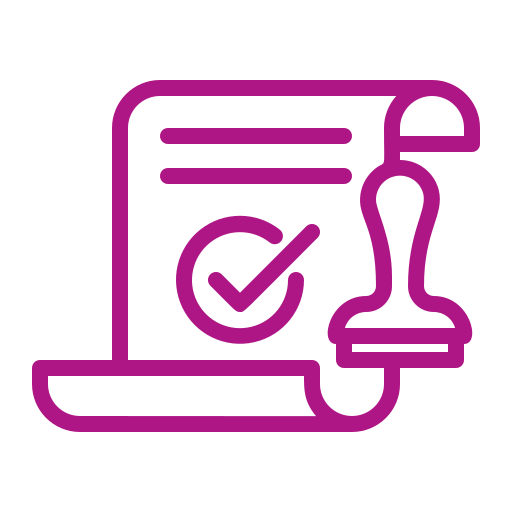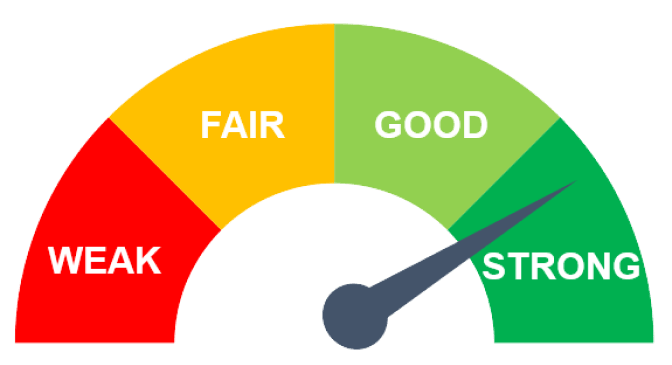How a good credit score can benefit you
Access better credit solutions
Lenders use your credit score to determine your creditworthiness. With a higher credit score, you can get loan offers with lower interest rates, higher loan amounts – better terms overall.

Faster approvals
Your credit approval may be improved or fast-tracked when you apply for new credit.

Save money on interest rates
Borrowers with higher credit scores will find it easier to secure the lower interest rates.
A holistic picture of your credit health
When you apply for a credit card, mortgage or car loan, lenders assess your creditworthiness based on your credit score and your credit report.

Experian i-SCORE
Experian i-SCORE is a consumer credit score that lenders use to evaluate your ability to repay a loan. Ranging from 300 to 800, the number is derived mathematically from the credit history in your credit report.
The higher the score, the more creditworthy you are, and the more likely you will secure a loan.
Take control of your financial future
Get your Experian credit report to know your latest credit information, and see how you might look to a lender.
Personal Credit Report Basic (PCRB)
FREE
- Personal Information
- Directorship and Business Interest
- Legal and Bankruptcy Information
- Trade Reference (Non-banking information)
- We’ll inform you if banks or other credit grantors make enquiries on you. This will help detect identity fraud early.
View sample report here.
 Sign up now
Sign up now
Personal Credit Report Plus (PCRP)
RM 23.90
(inclusive of SST)
- Everything from the Personal Credit Report Basic (PCRB), plus:
- Experian i-SCORE
- Banking information (CCRIS)
- Skim Potongan Gaji Angkasa (SPGA)
- Perbadanan Tabung Pendidikan Tinggi Nasional (PTPTN)
View sample report here.
 Purchase now
Purchase now
Recommended articles

Experian Drives Responsible Innovation Forward: Showcasing Insights from the GenAI Tech Series 2.0

Experian Launches Global UBO Solution to Facilitate Enhanced Due Diligence, Compliance and Know…

Experian Malaysia Empowers Workforce with GenAI Tech Week

Are Malaysians Managing Their Credit Well [Does It Matter?]
FAQS
Personal Credit Report is a report that contains your credit information in your credit file that is used by prospective financial institutions, professional bodies and credit grantors from various industries for credit evaluation or for the purpose of rating or analyzing your credibility and financial standing, in order to grant you credit facilities, supplies or job.
Personal Credit Report typically shows your name, NRIC number, address, your business interest, shareholding/ directorship (if any), litigation records (if any), bankruptcy records (if any), Skim Potongan Gaji ANGKASA (SPGA) (if any), Central Credit Reference Information System (CCRIS) from Bank Negara Malaysia (if any) as well as your banking and non-banking credit payment records (if any). If an organization has made a search, a record will be shown on your credit report, but only the organization concerned knows whether your application was accepted or refused. A credit report will not reveal if you have been accepted or turned down for any credit application. Information which is NOT included in your personal credit report is:
- Deposits or Savings accounts
- Employment records
- Marital status
- Health
- Criminal records
- Salary details
- Religion
Your credit information may be held by Credit Reporting Agencies in Malaysia. EXPERIAN, formerly known as RAM Credit Information, a licensed Credit Reporting Agency, collect, process and store credit information obtained from public and private domain, which comprises of companies, businesses and individuals. The credit information will be provided to financial institutions, professional bodies and credit grantors for credit evaluation or for the purpose of credit rating and analyze your credit standing and financial condition, before granting any credit facilities or supplies. Credit Reporting Agencies have the legal right to collect and process any credit information relevant to you i.e. courts case, bankruptcy orders, statutory information, credit payment information and etc. However, your credit information can only be disclosed to any third parties with your consent.
Please write to us, alternatively, you can raise your disputes or update record through our website at Dispute / Update Record. Please provide your complete name, NRIC and contact details in your letter/fax/email. Indicate each of your disputes and state the facts and reasons with copies of documents that support your disputes.
Mailing Address:
Experian Information Services (Malaysia) Sdn. Bhd. [200001029664 (532271-T)]
(Formerly known as RAM Credit Information Sdn Bhd)
Suite 16.02, Level 16, Centrepoint South
Mid Valley City, Lingkaran Syed Putra,
59200 Kuala Lumpur, Malaysia.
T: +603-2615 1100
F: +603-2284 8808
E: consumer-my@experian.com
W: https://www.experian.com.my
There are three (3) types of Personal Credit Report available in Experian. All prices are inclusive 6% service tax.
1. Personal Credit Report BASIC (PCRB) – FREE upon Sign Up
2. Personal Credit Report PLUS (PCRP) – RM23.90 per report
3. JagaMyID Basic Subscription – RM79.90 (1 year subscription + 4 free PCRP)
A credit score is a numeric representation of your credit worthiness in your credit report, based on available information on your credit files at the time of scoring. It will include highlights of key factors affecting your score, for your onwards improvement. The score helps lenders and credit grantors to predict how likely it is that you will repay a loan and make payments when they are due. Lenders or credit grantors may use credit scores in deciding whether to grant you credit, what terms and interest rate to offer you, and etc.
Information used to calculate your credit score may include:
- The number and type of accounts you have (credit cards, housing loans, car loans, personal loans, etc.);
- Whether you pay your loans on time;
- How much of your available credit you are currently using;
- The amount of your outstanding debt;
- Whether you have been actively applying for new credits;
- Whether you have any legal actions against you;
- The age of your accounts
Because your credit score reflects the information in your credit report, changes to your credit report may cause your credit score to change. One of the most important things you can do to improve your credit score is pay your loans by the due date. You can set up automatic payments from your bank account to help you pay on time, but be sure you have enough money in your account to avoid overdraft fees. Pay down your outstanding balance on a credit card or mortgage loan, correct an error in your credit report will help to increase your credit score.
